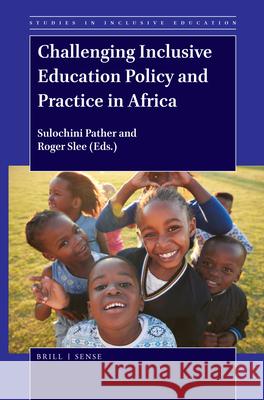Challenging Inclusive Education Policy and Practice in Africa » książka
Challenging Inclusive Education Policy and Practice in Africa
ISBN-13: 9789004391499 / Angielski / Twarda / 2018 / 168 str.
Challenging Inclusive Education Policy and Practice in Africa
ISBN-13: 9789004391499 / Angielski / Twarda / 2018 / 168 str.
(netto: 457,31 VAT: 5%)
Najniższa cena z 30 dni: 462,16
ok. 22 dni roboczych.
Darmowa dostawa!
It is a fundamental right for all children to be given access to quality education to ensure they reach their full potential as individuals; a right which is reflected in international law in Article 26 of the Universal Declaration of Human Rights and supported by the Education for All Agenda (1990) and the United Nations Convention on the Rights of People with Disabilities and Optional Protocol (2006). Nation states across Africa have signed up to these protocols and remain committed to ensuring education for all children. The progress globally however in the past 25 years, including in Africa, has been slow (UNESCO, 2015). Questions remain on why this is so and what can be done about it. This book brings together researchers, education policy makers and academics from the African community. What is unique about this text is that it includes local insights narrated and critiqued by local professionals. This book presents a wide range of African countries across the continent, to provide a critical overview of the key issues affecting developments. It questions the origins of ideas and definitions around inclusive education and the impact it has made on policy and ultimately practice, within local socio-cultural and economic communities, both urban and rural. It highlights positive developments as well as challenges and provides a deep understanding of why the process of implementing inclusive education is so complex in the African continent. It provides an understanding of what is needed to develop a more sustainable model of inclusive education across the continent and within specific countries.











